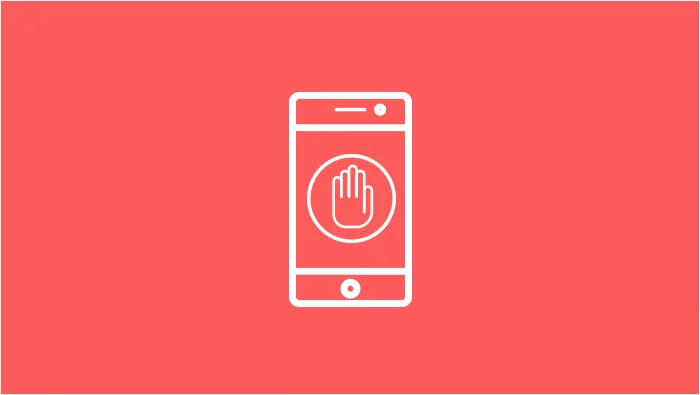Your browser is one of the most crucial tools for safely surfing the web. It's the only way to view a website's content — but it can also be the weakest link in your security. If you aren't taking steps to protect yourself, you're leaving yourself open to any number of threats. Malicious sites could steal your passwords or track your behavior across various websites while advertisers could bombard your screen with ads based on your previous actions. Find out which secure browsers are best to protect yourself from all that — and more — with this article.
What are the safety risks when using a browser?
Most people aren’t aware of browser fingerprinting, and it’s not especially dangerous. In most cases, this feature lets websites know which browser you’ve used before to access their site. For example, Microsoft Word uses this information to personalize your reading experience. However, site owners can also see which browsers you use in order to customize their experience.
However, this data can also be abused. Many sites have an option to print statistics about visitors that include their fingerprint so they can see which browsers people use, how long they’ve been visiting the site, and more.
Other ways fingerprinting can be abused are if a site already has your fingerprint in their database and is using the information to personalize your experience. For example, some ticketing systems have your fingerprint stored in order to read the information directly off of your device; if you already have a bad ticket or add a new one to your history, the system can use that same information to personalize your experience.
One less thing to worry about. Right?
Browser fingerprinting is a built-in feature of nearly every modern web browser. And while these fingerprinting systems are aimed to save us from getting lost on the Internet, you should still take special care when visiting websites that use browser fingerprinting.
The best way to keep yourself safe is to use a privacy-focused browser for all major internet sites. By choosing a browser from the list bellow, you can make sure the sites you visit are those you trust.
It’s time to choose a browser that puts your security first.
HTTP vs. HTTPS
Understanding how websites operate over insecure connections can help you make security decisions about protocols and technology stack. Understanding communication details about what happens on top of various IP addresses (or maybe across different countries), who is behind those servers, and so on is essential.
Thanks to ongoing research, it's becoming clear just how important it is to be able to identify inbound traffic to specific webpages. For example, some research shows that a page's inbound referral from organic search accounts for 23% of the final rankings that determine access to inbound search results and PageRank.
Adopting secure protocols and handling the transference of basic information is a great first step — but it's not enough. For best results, it's nearly always a best practice recommended by security professionals choosing which services to use and implementing proven mitigations to prevent hackers from stealing your data.
Learn more about the differences between HTTP and HTTPS protocols and tips for implementing them on your website.
SSL Certificates
You might not know it, but almost every website you visit today also requires a digital signature. Most browsers, operating systems, and various technology firms automatically trust web sites and websites' digital signatures. One of those organizations providing these certificates is the 'Second Certification Authority (CA)'.
Cross Site Scripting
The field of web development has come a long way since the days of the 'Write Paint' vulnerability. From cross-site scripting (XSS) attacks and cross-site request forgery (CSF) vulnerabilities to SQL injection and cross-protocol attack vectors, web developers have to be vigilant against all manner of usernames, passwords, and cookie strings being cross-referenced or manipulated during page printing or even copied and pasted in by other users
We have many handy features at our disposal as web surfers, from tabbed browsers to full-blown desktop environments. Chrome and Firefox are the most popular browsers in the US, and they all have their own distinct features.
Your browser is your work uniform. It’s where you store important data, watch your favorite videos, and access the internet for any number of uses: bookmarks, extensions, and passwords. And while it’s nice to customize your browser for individual needs, there are some basic security measures you should take to make sure your personal information and data stays safe.
Which secure browsers are best for privacy and security?

Google Chrome
Google Chrome , one of the most popular browsers in the US, has a plethora of security features in place. First (and foremost) is the HTTPS Everywhere extension. This simple add-on automatically explains how important SSL — the Transport Layer Security — is for browsing online. And Chrome includes a built-in button that allows you to toggle this option off for any site that uses it.
The last line of security protection is in the form of Google’s signature verification. It verifies the identity of every website you visit and prevents anyone from posing as a website’s owner or administrator. While not a really effective means to secure your finances or read your private messages, it is an excellent defense against people attempting to gain access to your accounts.
Mozilla Firefox
Firefox is a very popular browser across the internet — and for good reason. It offers both privacy-focused features and features that improve browsing speed and security without compromising what you see online. While you can customize your browser’s settings, using basic security guidelines like giving your information only to trusted sources, avoiding click-jacking or tracking, and installing software only from trusted sources, Firefox gets the job done. Plus, it boasts one of the best privacy-focused features for staying safe online in the 21st century: the recently-introduced Tracking Protection feature. It prevents websites and services from keeping a record of your browsing activity across devices, including several popular tools like Facebook or Google.
Mozilla Firefox includes a button people can click to toggle whether they want to access ad tracking information or not.
Additionally, you can pair your Firefox with the specially-developed Peacekeeper extension to add extra layers of protection to your favorite sites. It can block ads, trackers, and even malicious sites, adding its own layer of security to websites. Additionally, the web-based version of Mozilla’s Notes extension is a great way to improve your privacy at home and organize important information for quick access.
Opera
Opera is known for having one of the cleverest privacy features around. The company reserves your login info so that third parties can’t see what kind of information you come from, what you search for, and who you make purchases from. All of this information is secured on your computer, which is protected from being accessed by others. In the event that someone is attempting to log in to your husband’s site on another device with your login details on it, they won’t be able to see any of these changes. The other piece of information Opera stores on you is your calendar, which is a nice extra if you’re into keeping track of to-do lists, group meetings, and other such things.
Safari
The fast-growing web browser Safari has earned a reputation for providing a smooth and enjoyable experience. It offers the only way to get certain types of media content in a secure manner. Apple has additional privacy options, especially when it comes to advertising data. It also earns a place in the list of fastest web browsers due to its streamlined design.
Conclusion
The most obvious and straightforward reason to pick a secure browser is that they support stronger encryption. When a site doesn’t use a secure protocol, the information that’s being exchanged can be more at risk. This could include passwords, credit card numbers, or even a user’s identity.
Even browsers with the best intentions sometimes don’t do all they can to protect you. E.g. Google Chrome can be tricked into visiting some sites that it shouldn’t and Safari has a feature called Data Detectors that allows third-party trackers to grab data about specific web site visitors based on things like their language or the pages their visited over time.
But being secure only leaves you with about half the battle. If you’ve committed to safely browsing the web, the browser is one more step you still have to take after you set up a password manager, packed your saved passwords into beautiful, two-factor authentication services, and installed privacy-focused add-ons.

Nadejda Milanova
An experienced Content creator in the field of Search Engine Optimization (SEO) and WordPress. A true proffesional with a Master's degree focused on journalism.
Read more by Nadejda Milanova





